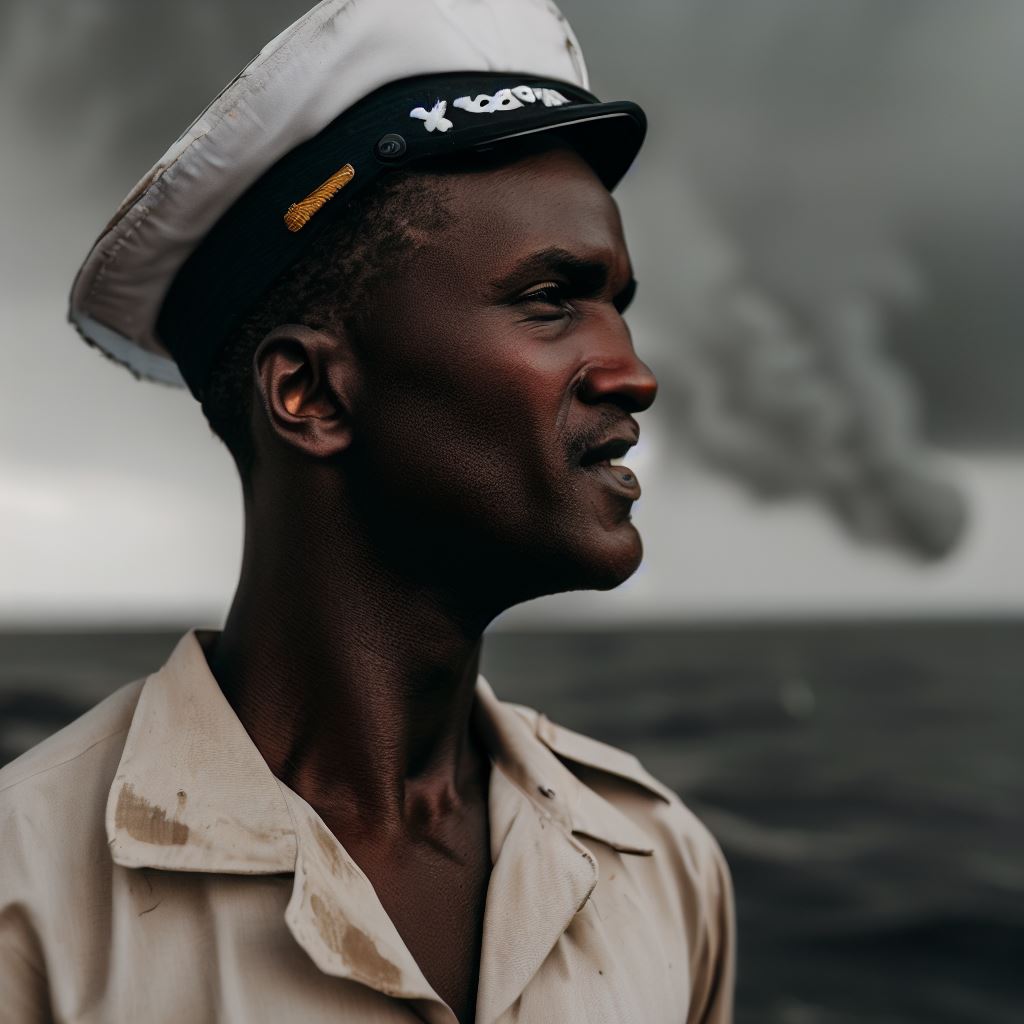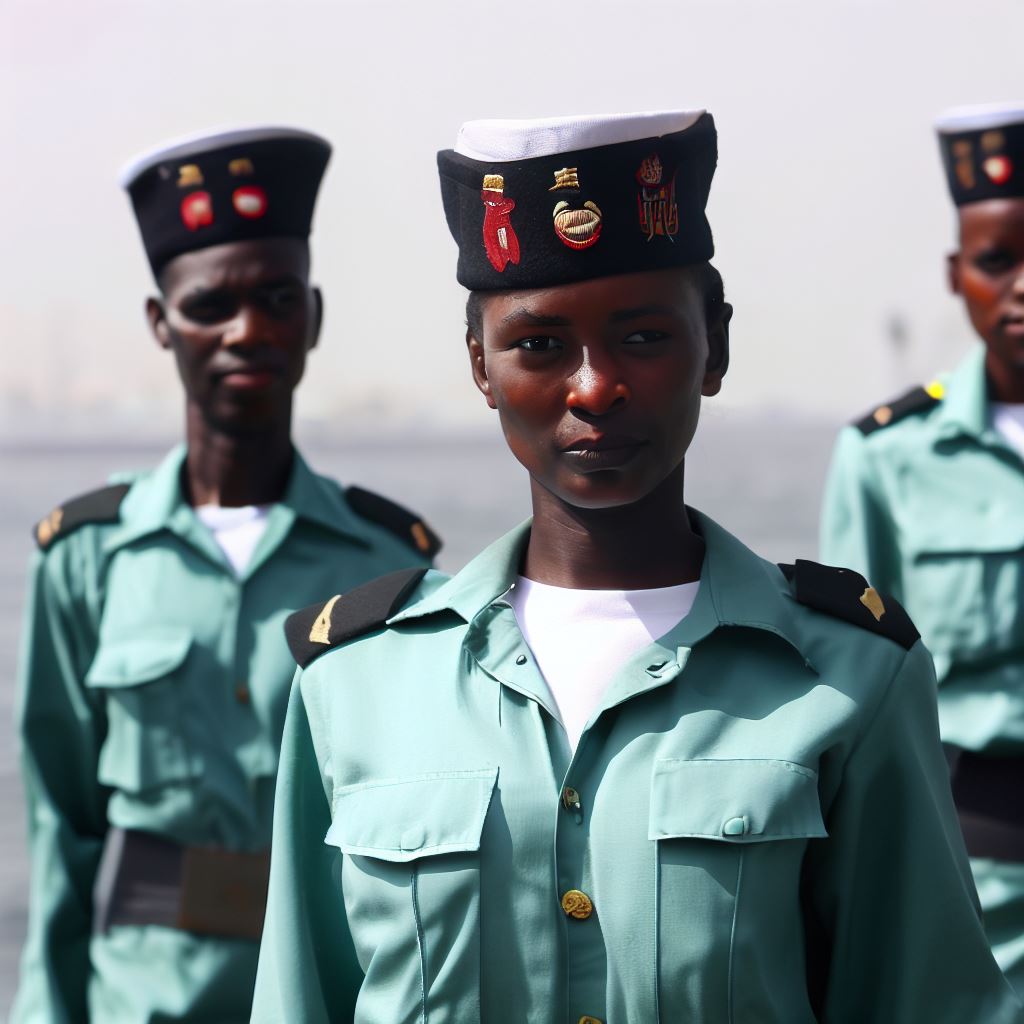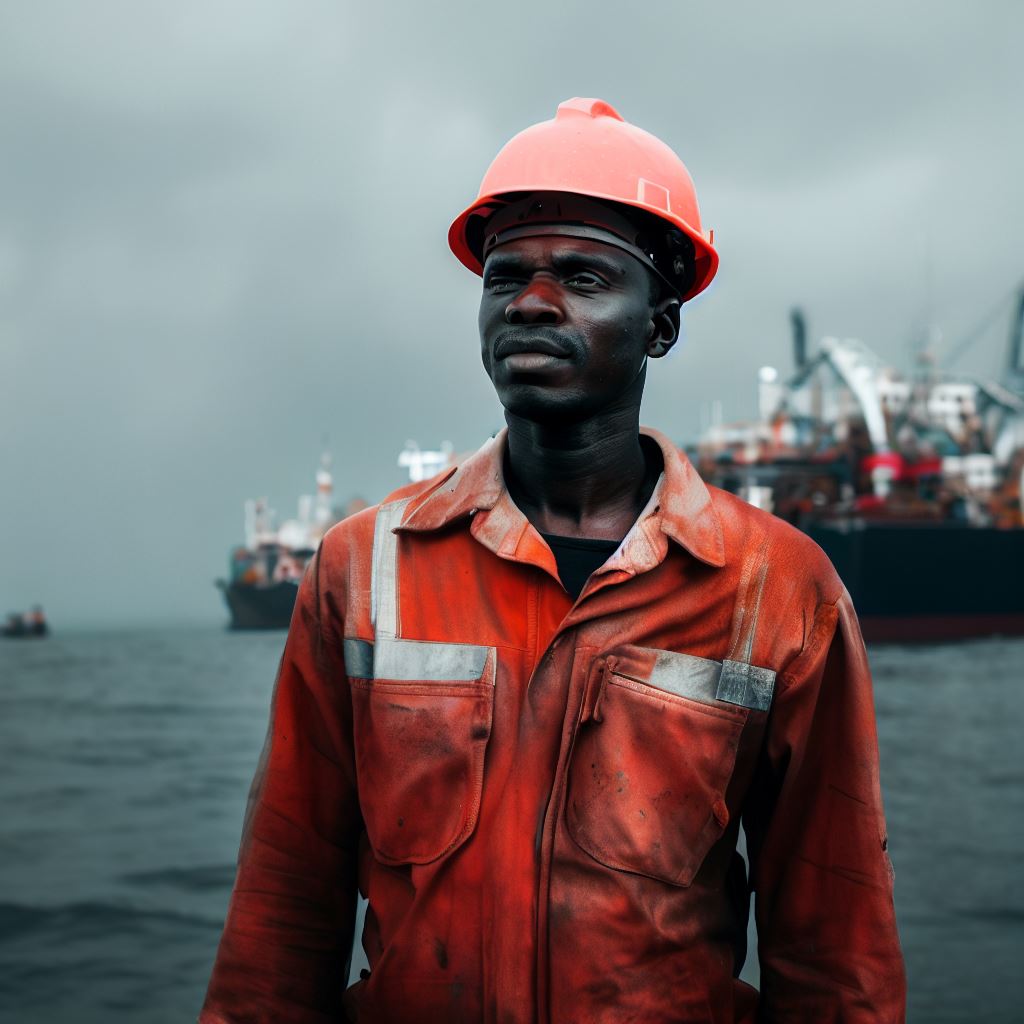Introduction
Climate change is a pressing global issue with significant implications for various industries.
This blog post focuses on the effects of climate change specifically on sailors in Nigeria.
Understanding Climate Change Climate change is a global crisis, driven by factors like greenhouse gas emissions and deforestation, affecting our planet.
Sailors’ Unique Challenge
- Sea Level Rise: Rising sea levels endanger coastal communities and port facilities, impacting sailors’ livelihoods.
- Extreme Weather: More frequent and severe storms pose dangers at sea, jeopardizing sailors’ safety and cargo.
- Altered Routes: Changing ocean currents and temperatures force sailors to adapt to new navigation challenges.
- Resource Scarcity: Climate-related disruptions affect the availability of essential resources for maritime operations.
- Health Risks: Increased heat and disease vectors threaten sailors’ well-being while onboard or at port.
- Economic Impact: Climate-induced disruptions can lead to job instability and financial strain for sailors.
As climate change intensifies, its impact on sailors in Nigeria becomes increasingly evident.
They face a unique set of challenges and risks due to shifting weather patterns, sea level rise, and the economic repercussions of these changes.
In the following chapters, we will delve deeper into these challenges and explore potential solutions to safeguard the well-being of Nigerian sailors in a changing climate.
Overview of Climate Change
Climate change and its causes
Climate change refers to the long-term alteration of temperature and typical weather patterns in a particular region.
It is primarily caused by human activities, such as the burning of fossil fuels and deforestation, which increase the concentration of greenhouse gases in the atmosphere.
Global impact of climate change
Climate change has far-reaching consequences worldwide, including rising sea levels, extreme weather events, and shifts in ecosystems.
These impacts threaten food security, human health, and the overall stability of the planet.
Importance of understanding local effects of climate change
Understanding the local effects of climate change is crucial for developing effective adaptation and mitigation strategies.
Sailors in Nigeria, for example, need to be aware of changes in sea levels, ocean currents, and weather patterns that can affect their safety and navigation.
Local effects of climate change can include increased storm frequency and intensity, sea-level rise, coastal erosion, and changes in marine ecosystems.
These factors directly impact the lives and livelihoods of sailors by posing risks to their safety at sea, damaging coastal infrastructure, and reducing fish stocks.
By understanding these local effects, sailors can better prepare for adverse conditions, adapt their navigation and fishing practices, and contribute to sustainable coastal resource management.
Climate change is a global issue with local implications. It is caused by human activities and has significant impacts on the environment and human societies worldwide.
Sailors in Nigeria, like sailors in other coastal regions, must understand the local effects of climate change to navigate safely and sustainably.
By acknowledging and addressing these effects, stakeholders can work towards mitigating and adapting to climate change for a more resilient future.
Read: Unionizing Sailors and Oilers: Nigeria’s Maritime Unions
Nigeria’s Vulnerability to Climate Change
Nigeria’s geographic location and its susceptibility to climate change
Nigeria is located on the west coast of Africa, making it vulnerable to rising sea levels and coastal erosion.
Rapid population growth and urbanization in coastal areas further exacerbate Nigeria’s vulnerability.
The changing weather patterns in Nigeria
Nigeria has experienced a significant shift in weather patterns due to climate change.
Extreme weather events like heavy rainfall, floods, and droughts are becoming more frequent and intense.
Challenges faced by sailors in Nigeria due to climate change
Sailors in Nigeria are grappling with various challenges resulting from climate change.
Sea level rise poses a threat to coastal infrastructure, making navigation hazardous for sailors.
Coastal erosion affects docking facilities, forcing sailors to find alternative ports and impacting trade.
Increased frequency of storms and unpredictable weather patterns disrupt sailing schedules, leading to financial losses.
Rising temperatures contribute to the proliferation of waterborne diseases, affecting the health of sailors.
Dwindling fish stocks, linked to warmer ocean temperatures, impact the livelihoods of fishermen turned sailors.
Changing wind patterns and unpredictable currents make sailing more challenging and dangerous.
Shifting rainfall patterns adversely affect rivers, lakes, and reservoirs, impacting sailors’ access to freshwater.
Sailors are also at risk of encountering marine pollution, including oil spills, which degrade water quality.
Inadequate infrastructure and limited resources hamper sailors’ ability to adapt to changing weather conditions.
Nigeria’s geographic location on the west coast of Africa and rapid urbanization make it highly vulnerable to climate change.
The country is experiencing changing weather patterns, including extreme events like heavy rainfall, floods, and droughts.
Sailors in Nigeria face numerous challenges due to climate change, such as sea level rise, coastal erosion, disruptions to sailing schedules, health risks, declining fish stocks, changing wind patterns, unpredictable currents, water scarcity, and marine pollution.
Limited resources and inadequate infrastructure further exacerbate these challenges, making it crucial to address the impacts of climate change on sailors in Nigeria.
Read: Marine Laws and Regulations: What Sailors Need to Know
Effects of Climate Change on Sailors in Nigeria
Rising sea levels and coastal erosion
Climate change poses significant challenges for sailors in Nigeria, particularly with the rising sea levels and coastal erosion.
As global temperatures continue to rise, the melting ice caps and glaciers contribute to the increasing sea levels. This phenomenon severely affects coastal areas, including the Nigerian shoreline.
With rising sea levels, sailors are confronted with the constant threat of coastal erosion. The intense flow of water erodes the coastline, leading to the loss of valuable land and posing risks to maritime infrastructure.
As a result, sailors face difficulties in finding suitable anchorages and protecting their vessels from damages caused by the erosion.
Increased intensity and frequency of storms
One of the most noticeable impacts of climate change on sailors in Nigeria is the increased intensity and frequency of storms.
As the earth’s temperature rises, the atmosphere becomes more unstable, leading to the formation of stronger storms.
Sailors must now navigate through rougher seas and contend with fierce winds, making their journeys more perilous than before.
The frequency of storms also means that sailors have less time for rest and recovery in between, further endangering their safety and overall wellbeing.
Changes in wind patterns and currents
Climate change also brings about changes in wind patterns and currents, which directly affect sailors in Nigeria.
These altered wind patterns and currents impact navigation, as sailors need to adjust their routes and strategies.
With shifting wind patterns, sailors may encounter unexpected challenges such as sudden gusts or lulls, creating difficulties in maintaining a steady course.
Changes in currents may also affect the speed and efficiency of sailing, requiring sailors to adapt their techniques or seek alternative routes.
Shifts in temperature and rainfall patterns
Another significant effect of climate change on sailors in Nigeria is the shifts in temperature and rainfall patterns.
Rising temperatures can result in extreme heat conditions, posing health risks for sailors working on deck for long hours.
Furthermore, changes in rainfall patterns can lead to periods of heavy rainfall or prolonged droughts.
Excessive rain affects visibility and navigation, while droughts may lead to water shortages and limited freshwater supplies for sailors.
Impact on navigation, fishing, and shipping activities
Overall, the effects of climate change significantly impact the navigation, fishing, and shipping activities of sailors in Nigeria.
With changing wind patterns, currents, and weather conditions, sailors face increased challenges in safely maneuvering their vessels and reaching their intended destinations.
Fishing activities may also be disrupted or reduced, as climate change affects fish habitats and migration patterns.
This has a direct impact on the livelihoods of many sailors who heavily rely on fishing as a source of income.
Additionally, shipping activities may be hindered due to risks posed by coastal erosion, storms, and altered navigation conditions.
These challenges can result in delays, damages, and higher operational costs for shipping companies, impacting the overall maritime industry in Nigeria.
In essence, climate change has profound effects on sailors in Nigeria.
Rising sea levels and coastal erosion, increased intensity and frequency of storms, changes in wind patterns and currents, shifts in temperature and rainfall patterns, as well as the impact on navigation, fishing, and shipping activities all contribute to the challenges faced by sailors in the country.
It is crucial for stakeholders to recognize and address these issues to ensure the safety and sustainability of Nigeria’s maritime sector.
Read: Tank Car Loaders in Nigeria: Skills, Pay, and Prospects
Case Study: Real-life Experiences of Nigerian Sailors
Interviewing sailors to gather firsthand accounts
By conducting interviews with Nigerian sailors, we can shed light on the real-life experiences of those most affected by climate change.
These firsthand accounts provide valuable insights into how climate change is impacting their work and livelihoods.
Through these interviews, we can learn about the changes in weather patterns, sea conditions, and navigation challenges faced by Nigerian sailors.
Rising sea levels, storms, and unpredictable winds have become everyday obstacles for these sailors, making their work more dangerous and unpredictable.
Stories of how climate change has affected their work and livelihoods
The experiences of Nigerian sailors reflect the broader impact of climate change on the maritime industry. Severe weather conditions hinder safe and efficient operations, endangering both sailors and cargo.
The fishing industry, in particular, has been heavily affected, with changing water temperatures and overfishing threatening livelihoods.
By sharing the stories of these sailors, we can underscore the human dimension of climate change. They are not just statistics; they are individuals facing immense challenges on a daily basis.
Their stories serve as a reminder that climate change is not an abstract concept, but a reality that is changing lives.
These stories also highlight the resilience and adaptability of the Nigerian sailors.
Despite the obstacles they face, they continue to find innovative solutions to navigate and survive in this changing environment. Their experiences serve as inspiration for others facing similar challenges.
By amplifying the voices of Nigerian sailors and sharing their stories, we hope to raise awareness about the impact of climate change, both locally and globally.
It is crucial to recognize the real-life consequences of climate change and work towards sustainable solutions to mitigate its effects.
Read: Recruitment and Training for Marine Oilers in Nigeria

Environmental Impacts on Marine Life
The impact of climate change on marine ecosystems in Nigeria
Climate change has significant effects on marine ecosystems in Nigeria, leading to various consequences.
- Increased sea surface temperatures can disrupt marine habitats and affect the distribution of species.
- Warmer waters can lead to coral bleaching, causing the loss of vital marine biodiversity.
- Rising sea levels can flood coastal areas, threatening the nesting grounds of marine turtles.
- Acidification of the oceans due to increased carbon dioxide absorption can harm shellfish and coral reefs.
- Extreme weather events, like hurricanes, can damage marine ecosystems and disrupt food chains.
Consequences for fisheries and marine biodiversity
The consequences of climate change on fisheries and marine biodiversity are alarming.
- Changes in sea conditions impact fish migration patterns, reducing fish stocks and affecting fishing communities.
- Declining fish populations lead to economic losses and food insecurity for coastal communities in Nigeria.
- Disruption of marine ecosystems affects the entire food web, threatening the survival of various species.
- Destruction of coral reefs, important breeding and feeding grounds, negatively impacts marine biodiversity.
- Loss of marine biodiversity reduces the resilience and adaptability of ecosystems to environmental challenges.
In fact, climate change wreaks havoc on marine ecosystems in Nigeria, with severe consequences for fisheries and marine biodiversity.
Urgent measures are needed to mitigate and adapt to these environmental impacts to ensure the sustainability of marine life and the livelihoods of sailors.
Economic and Social Consequences
Economic implications of climate change for sailors
- Declining fish populations due to rising ocean temperatures affect the income and food security of sailors.
- Extreme weather events, like hurricanes and storms, can damage or destroy boats and infrastructure, leading to financial losses.
- Changing weather patterns disrupt fishing seasons, reducing the effectiveness of sailing expeditions and causing financial instability.
- Rising sea levels and coastal erosion lead to loss of land and displacement of coastal communities, impacting sailors’ livelihoods.
Analyze the social repercussions on coastal communities and sailor families
- Increased frequency and intensity of natural disasters put coastal communities at risk, leading to loss of lives and homes.
- Relocation and displacement of coastal communities disrupt social structures and cultural heritage, affecting sailor families’ sense of belonging.
- Climate-induced migration can strain social services and resources in receiving communities, including education and healthcare.
- Emotional distress and trauma caused by climate-related events can impact the mental health of sailors and their families.
- Changing weather patterns disrupt traditional fishing practices, eroding the cultural identity and pride of sailor communities.
In short, climate change exerts significant economic and social consequences on sailors in Nigeria.
The declining fish populations, extreme weather events, and changing weather patterns all contribute to financial instability for sailors.
Additionally, the social repercussions such as the risk faced by coastal communities, displacement, and loss of cultural heritage also impact sailor families.
It is crucial to address climate change to protect the livelihoods and well-being of sailors and their communities.
Find Out More: Nigeria’s Air Traffic Controllers: Roles and Careers
Mitigation and Adaptation Strategies
Potential solutions for addressing climate change impacts on sailors
- Improve weather forecasting systems to provide accurate and timely information for sailors.
- Implement innovative navigation technologies to enhance safety and efficiency in changing weather conditions.
- Develop and enforce strict emission regulations for ships to reduce their contribution to climate change.
- Promote renewable energy sources, such as wind or solar power, for propulsion and onboard operations.
- Invest in research and development of eco-friendly ship designs and technologies to minimize environmental impact.
- Enhance training programs for sailors to educate them about climate change risks and appropriate response measures.
- Support sustainable fishing practices to ensure the preservation of marine ecosystems and the livelihoods of sailors.
- Establish early warning systems to alert sailors about severe weather events and potential hazards.
Sustainable measures for sailors and the maritime industry in Nigeria
- Promote energy-efficient practices in maritime operations, such as optimizing routes to reduce fuel consumption.
- Encourage the use of eco-friendly cleaning products and waste management systems on ships.
- Implement stricter regulations on the disposal of solid waste, sewage, and oily bilge water.
- Introduce incentives for ship owners and operators to upgrade their vessels with energy-saving technologies.
- Support research on alternative fuels, like hydrogen or biofuels, to reduce greenhouse gas emissions.
- Collaborate with international organizations to develop and enforce sustainable practices in the maritime industry.
- Invest in coastal protection measures, such as coastal fortification and mangrove restoration, to mitigate rising sea levels and storm surges.
- Enhance monitoring and surveillance systems to prevent illegal fishing and protect marine habitats.
In general, addressing the impacts of climate change on sailors in Nigeria requires a combination of mitigation and adaptation strategies.
By implementing potential solutions like improving weather forecasting systems and promoting sustainable measures, the maritime industry can minimize its environmental footprint while ensuring the safety and well-being of sailors.
It is essential to take proactive actions now to safeguard the future of both sailors and the marine ecosystem.
Find Out More: Exploring the Current Landscape of Nigeria’s Travel Industry
Conclusion
Climate change has several negative effects on sailors in Nigeria. Further research and actions are needed to combat climate change and its impacts.
Let’s inspire readers to support initiatives for protecting sailors and marine environments in Nigeria.
Effects on Sailors
- Rising sea levels threaten coastal communities and disrupt port operations, impacting sailors’ job security.
- Extreme weather events pose risks to sailors’ safety and cargo transportation.
- Altered sea routes and ocean conditions require adaptation, affecting navigational challenges.
- Resource scarcity due to climate-related disruptions affects sailors’ daily operations.
- Health risks such as heat stress and disease outbreaks endanger sailors’ well-being.
- Economic instability can result from climate-induced disruptions, affecting sailors’ livelihoods.
Urgent Need for Action To combat these threats, further research into climate change’s impact on Nigerian sailors is essential. Action is crucial to mitigate these effects and protect our marine environments.
Support Initiatives Join initiatives aimed at safeguarding sailors and marine ecosystems in Nigeria. Your support can make a significant difference.




